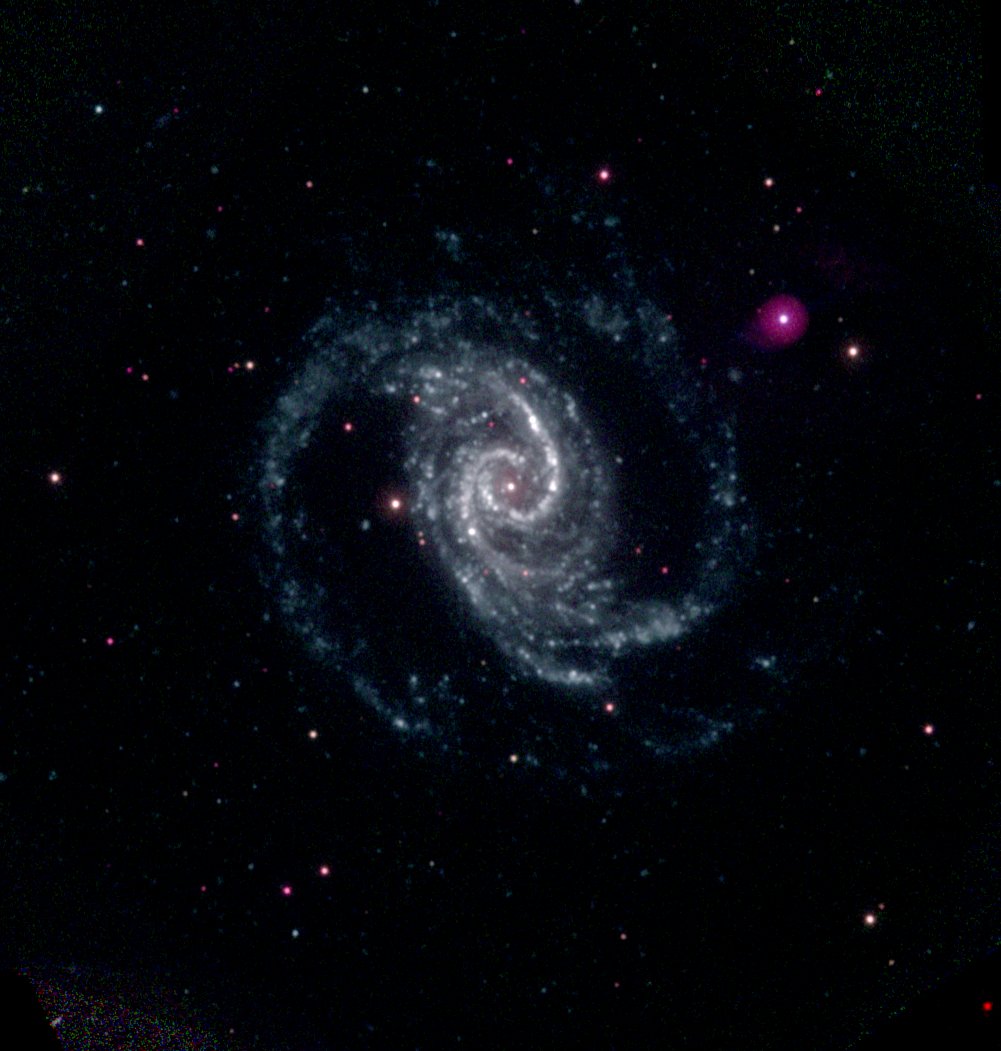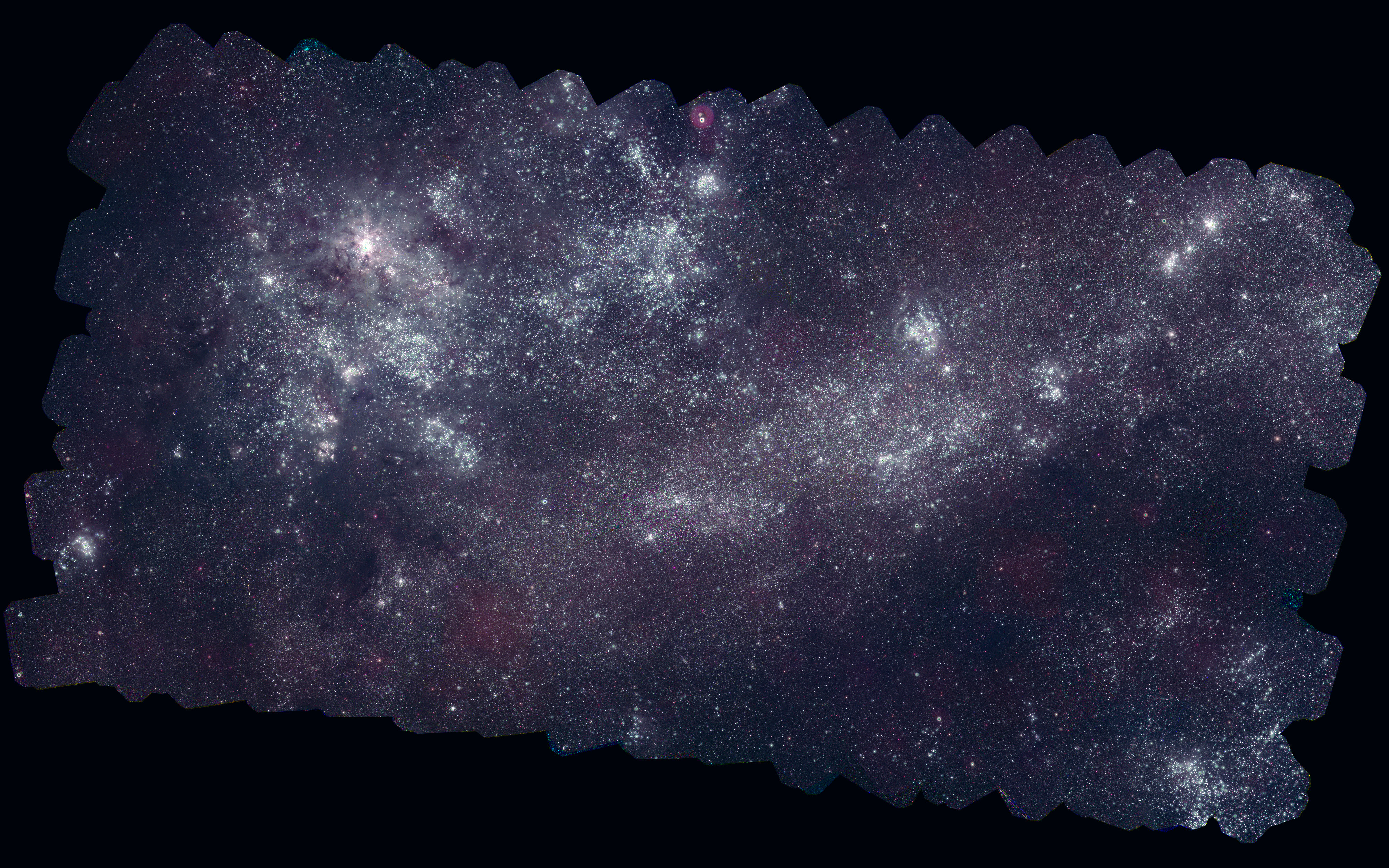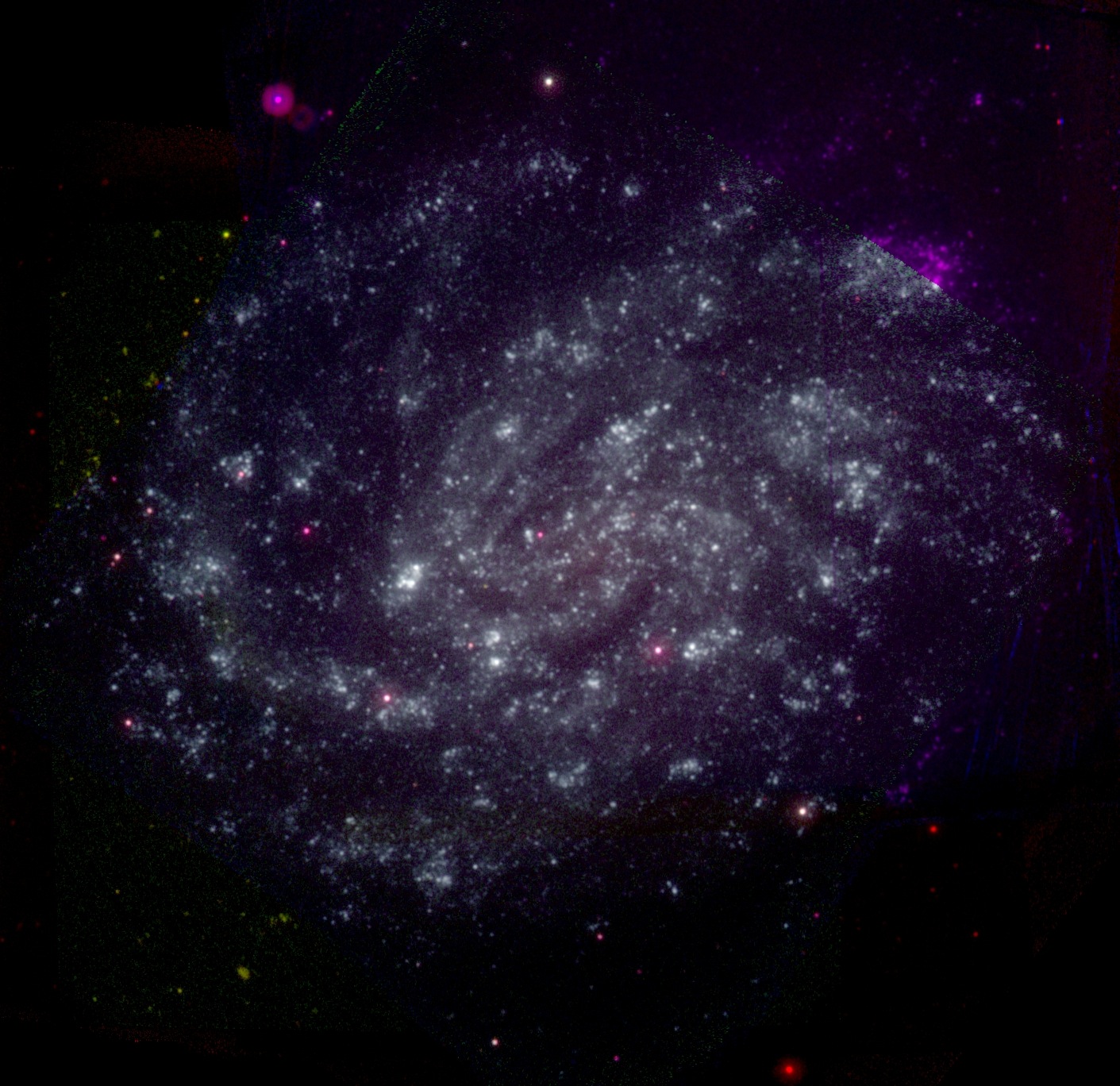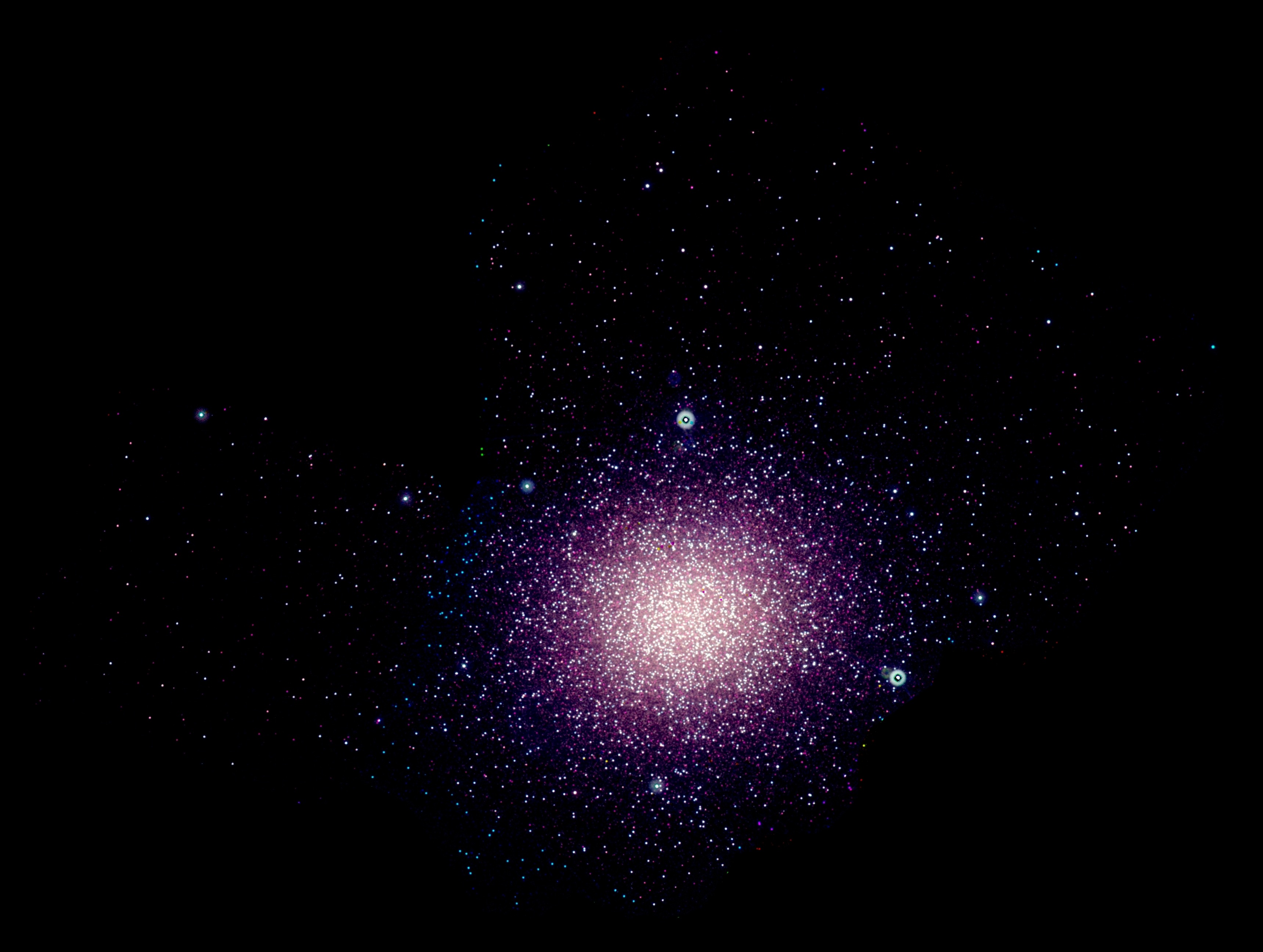Mission Overview
Map of Observations
Wavelength Coverage
The Neil Gehrels Swift Observatory is a first-of-its-kind multi-wavelength observatory dedicated to the study of gamma-ray burst (GRB) science. Its three instruments work together to observe GRBs and afterglows in the gamma-ray, X-ray, ultraviolet, and optical wavebands. MAST serves as a secondary archive for the Ultraviolet Optical Telescope (UVOT).
From http://heasarc.gsfc.nasa.gov/docs/swift/swift.html:
The Neil Gehels Swift Observatory is a NASA medium sized explorer mission, developed in collaboration with UK and Italy. It was successfully launched on November 20, 2004 from Cape Canaveral (USA). The primary scientific objectives are to determine the origin of Gamma Ray Bursts (GRB) and to pioneer their use as probes of the early universe. The multiwavelength observatory carries three instruments: the Burst Alert Telescope (BAT; Gamma Ray), the X-ray Telescope (XRT) and the Ultraviolet/Optical Telescope (UVOT). Note only the UVOT data is being archived at MAST.
Key characteristics are the rapid response to newly detected GRB and rapid data dissemination. As soon as the BAT discovers a new GRB, Swift rapidly relays its 1-4 arcmin position estimate to the ground and triggers an autonoumos spacecraft slew to bring the burst within the field of view of XRT and UVOT to follow-up the afterglow. The Neil Gehels Swift Observatory is expected to provide redshifts for the bursts and multi-wavelength lightcurves for the duration of the afterglow. The BAT will also perform a high sensitivity hard X-ray sky survey.
Active From
November 20, 2004 - Present
Resolution
λ/Δλ ~ 200 (grisms @400 nm)
Capabilities
- Visible u, b, and v filters
- Ultraviolet wide- and medium-band filters
- Visual and UV grisms
- Sensitvity of B = 22.3 in white light in 1000 s
Documentation
The Swift Ultra-Violet/Optical Telescope
October 2005

Search Tools
Featured Data Products
SwiftUVOT Images
Supplemental Links
Credits
MAST made extensive use of the Swift web sites at HEASARC, Penn State, ASI Science Data Center in Italy, and the University of Leicester in England. All the catalog information and data sets available from MAST were provided by the HEASARC Guest Observer Facility.












